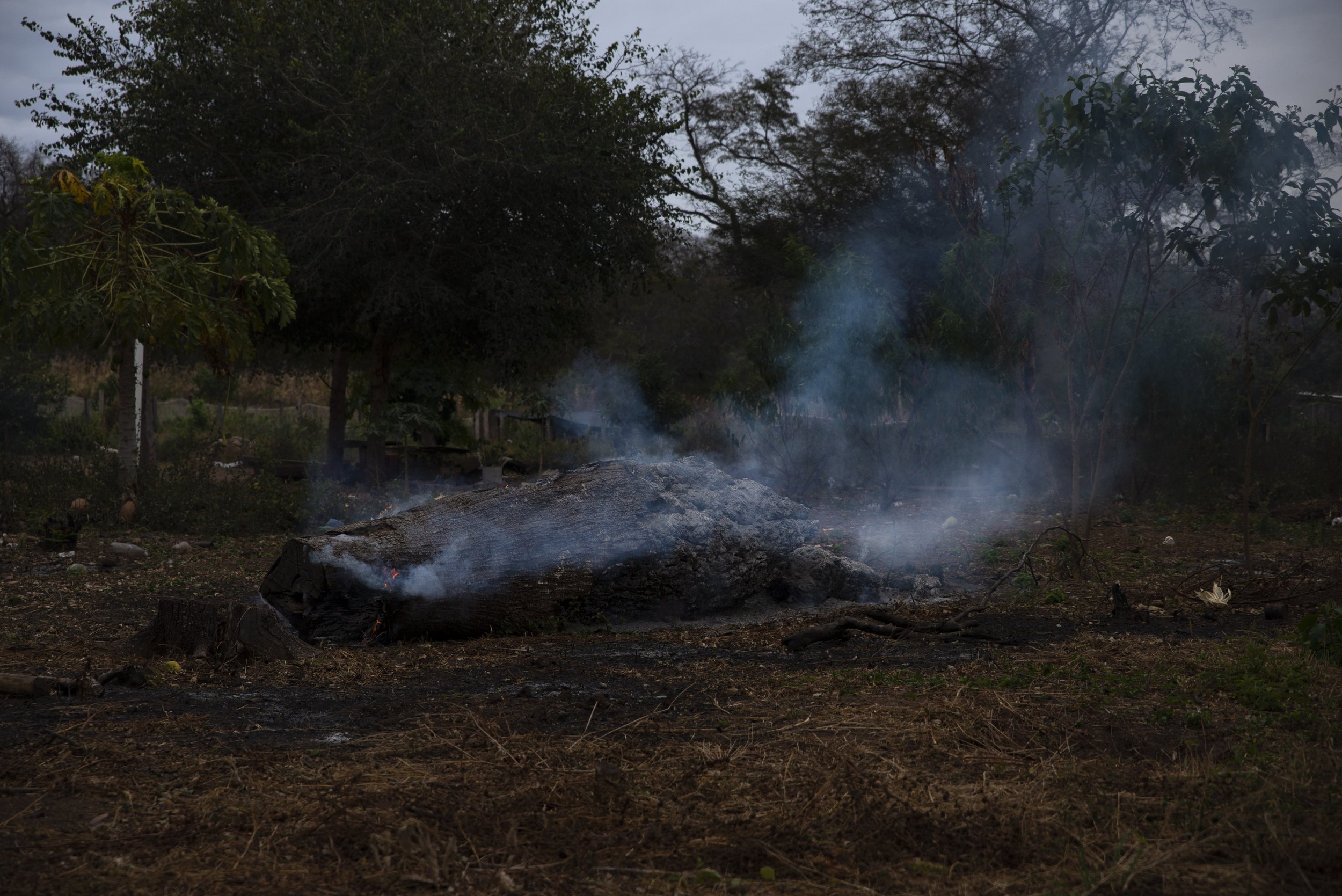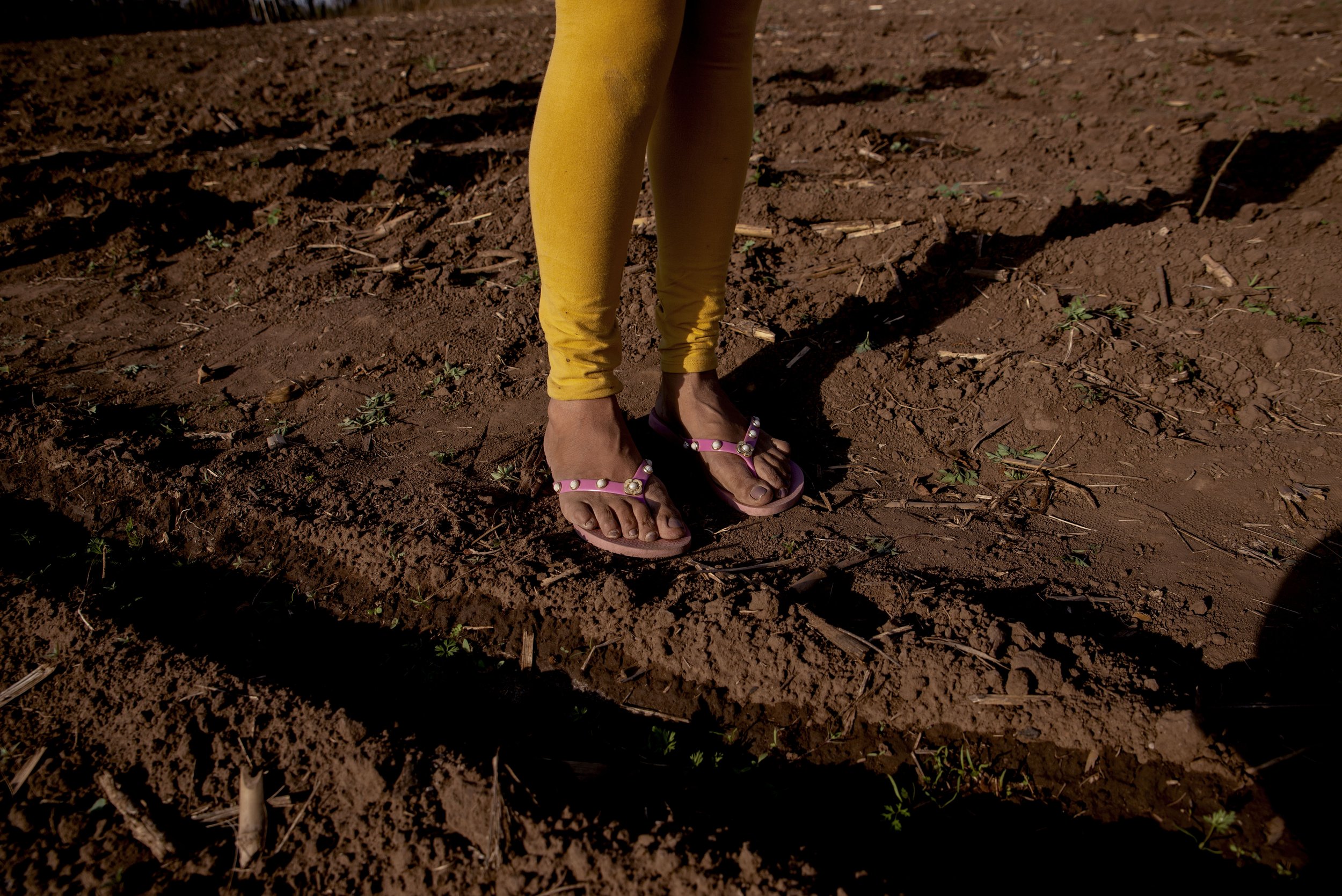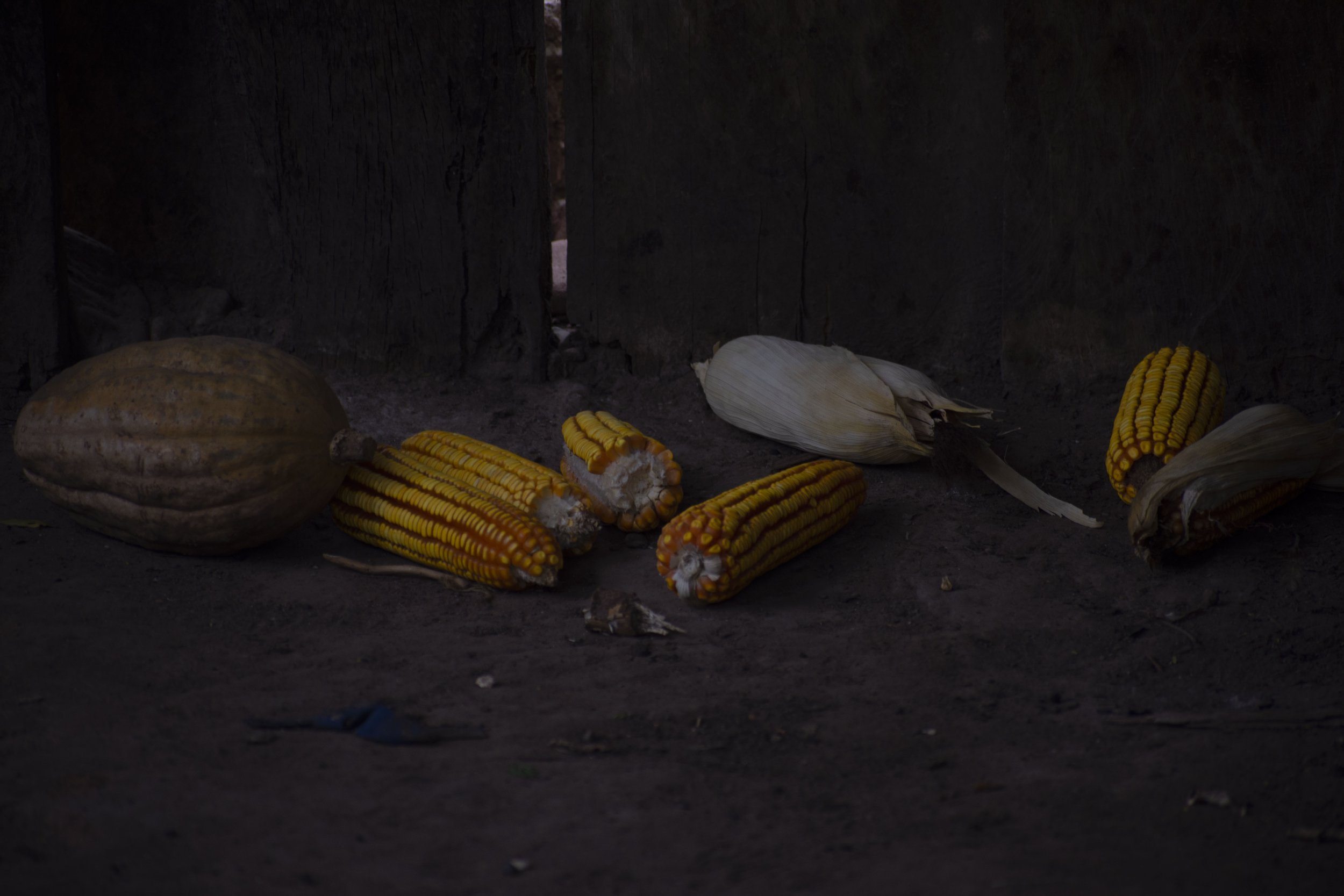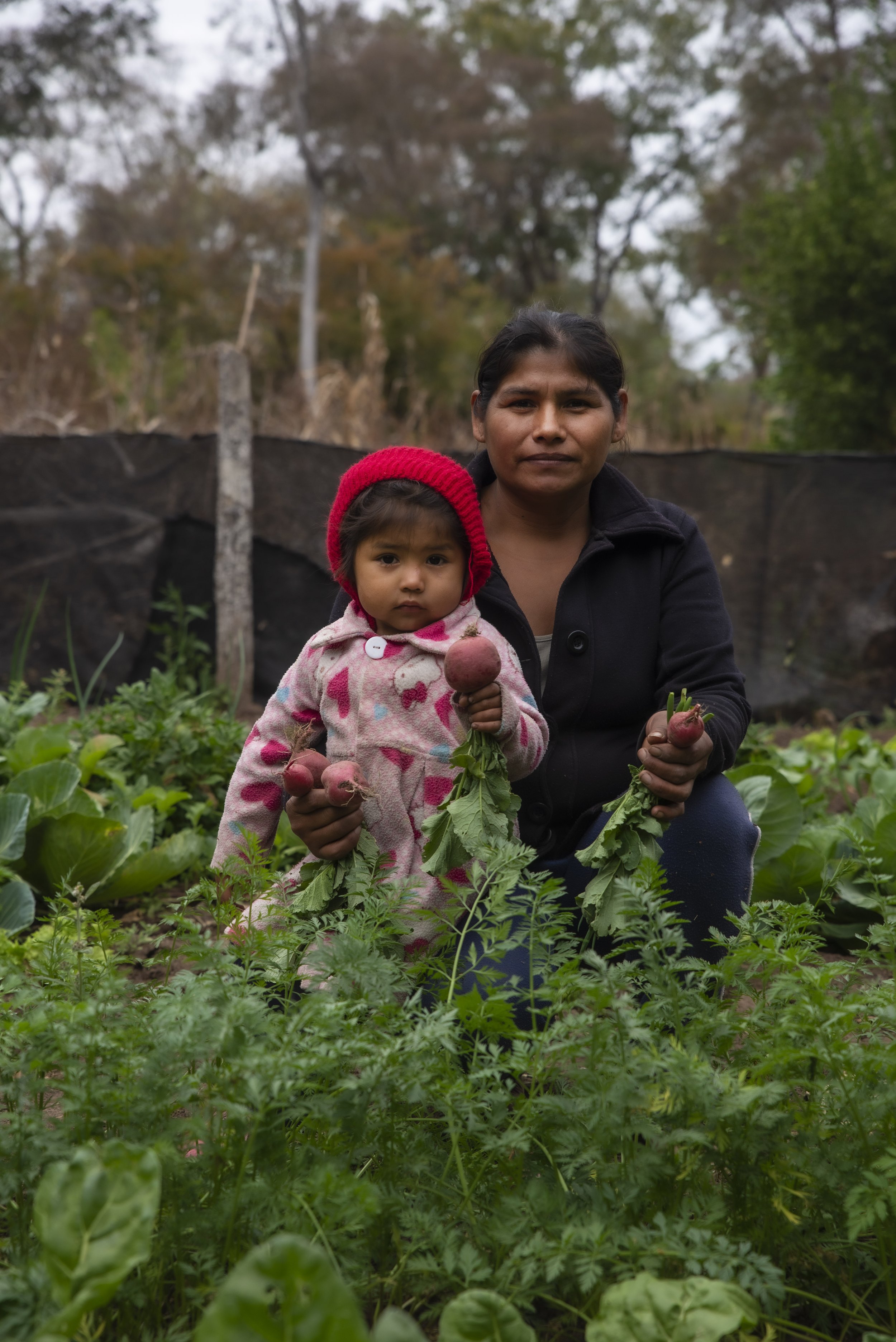




WORDS AND IMAGES BY SARA ALIAGA
EDITED BY TAMARA BLAZQUEZ HAIK
Living in a naturally arid territory, where growing vegetables, fruits and legumes is not an easy task, the Guaraní women of the Timboy, Tiguasú, Pozo del Anta and Yaguacua Indigenous communities in Bolivia are leading the creation of community gardens. They seek to draw the attention of state authorities who might support them with training, crop diversification and, most importantly, access to water.
The women in these communities collect water from water tanks that organizations have donated. They refill them once a week for consumption and irrigation.
The world’s largest dry tropical forest, known as the Gran Chaco, is shared between the four countries of Bolivia, Argentina, Paraguay and Brazil, and for the last three years, the region has been experiencing one of the most devastating droughts in its history. Experts believe that this drought was brought about by the “triple-dip” (three consecutive years) La Niña phenomenon that started in 2020. However, climate change, exacerbated by massive deforestation in the area, is also to blame. This drought was expected to end by the beginning of 2023, but it has persisted; and the Indigenous people of the Bolivian Chaco region continue to suffer the consequences.
Aerial view of a sector of the Pozo del Anta community in Yacuíba, showing deforestation.
The drought threatens the survival of the Guaraní people by endangering their food security. The impact of both the drought and climate change, as well as the lack of economic support, have made growing and harvesting crops a challenge—one that has forced many to leave their lands and migrate in search of a better life.
In spite of the dire situation, the women of the Guaraní Indigenous Yaku-igüa communities in the municipality of Yacuíba have taken the reins in counteracting the effects of this long drought. With few agricultural tools at hand, they were still successful in creating and managing community vegetable gardens.
Through their collective work, these women have managed to grow corn, a very important food for the Yaku-igüa communities, as it represents them culturally while also being one of the main foods consumed by the families of the Yacuíba municipality. They have also managed to grow pumpkins, a much-appreciated crop that has allowed Guaraní families to diversify their diet.
Pumpkins are highly appreciated by Guaraní women in this community because it has allowed them to diversify their diet.
Rosa Baldiviezo, 36 years old, from the Timboy Tiguasú community, with her two-year-old daughter in their family garden. With the implementation of the communal garden, many families mention that they have become aware of the quality and diversity of their food.
However, vegetable gardens require water to grow—and even though some organizations have donated water tanks, the drought still provides an obstacle for many families and communities in the Gran Chaco region who need access to this vital liquid. This is why the Guaraní women are hoping to get the authorities’ attention through their communal gardens. The collective efforts of these women have already helped many families survive the drought and gain access to high-quality foods, while also slowly reversing the effects that climate change and deforestation have had on this dry tropical forest. Their work is having a positive impact on the environment, but also on the families that once saw migration as their only means for survival. These families now have hope that their struggle for water in the Bolivian Gran Chaco may soon come to an end.
Sara Aliaga is our Micro-Grant recipient for June 2023. Sara is a Bolivian social communicator, photojournalist and Aymara visual artist. As a photographer and visual storyteller, she conceives photography as a social instrument to reclaim identities, where the fundamental axes of her visual research converge around gender and identity, human rights, the climate crisis, and the impact they all have on Indigenous peoples.
To learn more about her work, visit her website.









